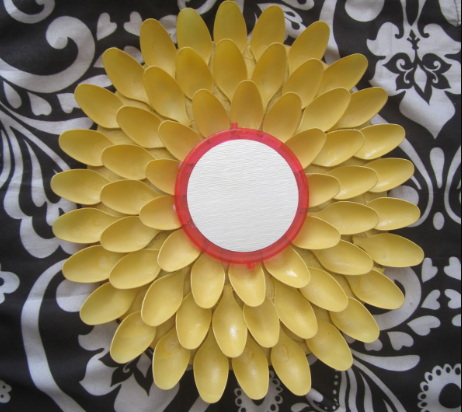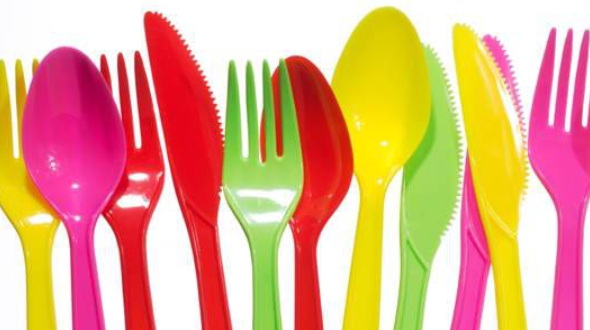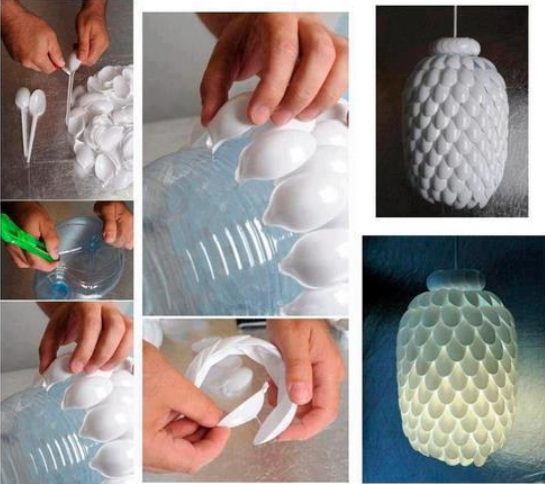
Content Menu
● Introduction to Spoon Disposable Products
>> Environmental Impact of Spoon Disposable Products
● Challenges in Recycling Spoon Disposable Products
>> Example of Recycling Challenges
● Alternatives to Spoon Disposable Products
>> Sustainable Alternatives
● Innovative Recycling Solutions
>> Video: Recycling Plastic Utensils into 3D Filament
● DIY Recycling Ideas for Spoon Disposable Products
>> Example of DIY Recycling
● Promoting Sustainable Practices
>> Case Study: Promoting Sustainability
● Future of Plastics Recycling
● Conclusion
● FAQs
>> 1. Can Spoon Disposable Products Be Recycled?
>> 2. What Are Sustainable Alternatives to Spoon Disposable Products?
>> 3. How Can I Repurpose Spoon Disposable Products?
>> 4. What Are the Environmental Impacts of Spoon Disposable Products?
>> 5. How Can I Encourage Others to Use Sustainable Alternatives?
● Citations:
In today's world, the use of disposable products, including spoon disposable items, has become increasingly prevalent due to their convenience. However, this convenience comes at a significant environmental cost, contributing to plastic pollution and waste management challenges. This article explores the recycling options for spoon disposable products, highlighting the challenges, alternatives, and innovative solutions.

Introduction to Spoon Disposable Products
Spoon disposable products are commonly made from plastic, wood, or biodegradable materials. Plastic spoons, in particular, are widely used due to their low cost and ease of production. However, they are typically made from polystyrene or polypropylene, which are derived from non-renewable fossil fuels and contribute to plastic pollution.
Environmental Impact of Spoon Disposable Products
The environmental impact of spoon disposable products is substantial. They often end up in landfills, where they take hundreds of years to decompose, breaking down into microplastics that contaminate soil and water sources. The production process also involves greenhouse gas emissions and resource depletion. For instance, plastic spoons that find their way into water bodies severely threaten marine life, as animals mistake them for food or become entangled in them[6].
Challenges in Recycling Spoon Disposable Products
Recycling spoon disposable products is challenging due to several factors:
1. Inconsistent Materials: Plastic spoons are made from various materials, such as polystyrene (#6 plastic) or polypropylene (#5 plastic), which are not always labeled with resin codes.
2. Unorthodox Shape: Plastic utensils can jam machinery in materials recovery facilities (MRFs), making them difficult to process.
3. Limited Recycling Infrastructure: Many local recycling programs do not accept plastic utensils due to these challenges.
Example of Recycling Challenges
Disposable plastic utensils, including spoons, are generally not recyclable through standard curbside recycling programs. However, some specialized programs or mail-in services may accept certain types of plastic utensils, especially if they are marked with resin codes like 5-PP or 6-PS[1].
Alternatives to Spoon Disposable Products
To mitigate the environmental impact, several alternatives to spoon disposable products are available:
1. Reusable Spoons: Made from materials like stainless steel, bamboo, or silicone, these spoons are durable and can be used multiple times.
2. Compostable Spoons: Made from materials like cornstarch or PLA, these spoons are biodegradable but require proper composting facilities.
3. Edible Spoons: Made from ingredients like wheat or rice, these spoons can be consumed after use, leaving no waste behind.
Sustainable Alternatives
Companies like Fresh Tableware offer sustainable alternatives to plastic spoons, including bamboo, wood, or biodegradable plant-based plastics. These reusable and compostable options provide a practical and environmentally conscious solution for everyday dining needs[6].

Innovative Recycling Solutions
While traditional recycling methods may not be viable for spoon disposable products, innovative solutions are emerging:
1. Upcycling and Repurposing: Creative ways to reuse plastic spoons include crafting them into decorative items or plant markers.
2. Conversion to 3D Printing Filament: Some projects involve converting plastic utensils into 3D printing filament, providing a unique recycling pathway.
3. Pyrolysis: This thermal process decomposes plastic's chemical chains into hydrocarbons, enabling the recycling of previously non-recyclable plastics. It offers a closed-loop system with significant environmental benefits by converting plastic waste into fuel or feedstock for new plastic production[3].
Video: Recycling Plastic Utensils into 3D Filament
DIY Recycling Ideas for Spoon Disposable Products
Here are some DIY ideas to reuse spoon disposable products:
1. Plant Markers: Use plastic spoons as markers for plants in your garden by writing the plant name on the spoon and sticking it into the soil.
2. Wind Chimes: Drill holes in the spoons and attach them to a metal ring to create a unique wind chime.
3. Picture Frame Decor: Glue spoons around a picture frame to create a decorative border.
Example of DIY Recycling
Creating a wind chime from plastic spoons is a creative way to reuse them. This not only reduces waste but also adds a unique decorative element to your home.
Promoting Sustainable Practices
Encouraging sustainable practices involves more than just choosing alternatives to spoon disposable products. It requires a broader shift in consumer behavior and policy changes:
1. Awareness Campaigns: Educating consumers about the environmental impacts of disposable products can encourage the adoption of sustainable alternatives.
2. Policy Changes: Governments can implement policies to reduce single-use plastics, such as banning certain types of disposable utensils or imposing taxes on their use.
3. Corporate Responsibility: Companies can promote sustainability by offering eco-friendly products and encouraging customers to use reusable options.
Case Study: Promoting Sustainability
In India, the palm leaf cutlery industry has created employment opportunities and reduced local plastic waste by 35% since 2019. This demonstrates how sustainable alternatives can have both environmental and economic benefits[4].
Future of Plastics Recycling
The future of plastics recycling holds promise with emerging technologies like pyrolysis and solvent dissolution. These innovations can recycle complex materials and provide a closed-loop system for plastic waste management. As these technologies become more widespread, they could significantly reduce the environmental impact of spoon disposable products by converting them into valuable resources.
Conclusion
Recycling spoon disposable products poses significant challenges due to material inconsistencies and infrastructure limitations. However, by adopting sustainable alternatives like reusable or compostable spoons and engaging in innovative recycling practices, we can reduce plastic pollution and promote a more environmentally conscious lifestyle.

FAQs
1. Can Spoon Disposable Products Be Recycled?
Spoon disposable products are generally not recyclable through standard curbside recycling programs due to their shape and material inconsistencies. However, some specialized programs or mail-in services may accept certain types of plastic utensils, especially if they are marked with resin codes like 5-PP or 6-PS[1].
2. What Are Sustainable Alternatives to Spoon Disposable Products?
Sustainable alternatives include reusable spoons made from stainless steel or bamboo, compostable spoons made from cornstarch or PLA, and edible spoons made from food materials[2][4].
3. How Can I Repurpose Spoon Disposable Products?
You can repurpose plastic spoons by turning them into decorative items, plant markers, or even converting them into 3D printing filament[1].
4. What Are the Environmental Impacts of Spoon Disposable Products?
The environmental impacts include plastic pollution, greenhouse gas emissions during production, and resource depletion due to the use of non-renewable materials[2][6].
5. How Can I Encourage Others to Use Sustainable Alternatives?
Encourage others by promoting awareness about the environmental impacts of disposable products, offering incentives for using sustainable alternatives, and supporting policy changes that reduce single-use plastics[4].
Citations:
[1] https://www.reddit.com/r/recycling/comments/l2ms1s/can_disposable_utensils_be_recycled/
[2] https://cosmosecofriends.com/the-environmental-impact-of-disposable-spoons-and-sustainable-alternatives/
[3] https://www.sustainablemanufacturingexpo.com/en/articles/future-plastics-recycling-innovations.html
[4] https://whatisgreenliving.com/best-eco-friendly-disposable-cutlery/
[5] https://inochiglobal.com/plastic-spoon-manufacturing-process/
[6] https://www.freshtableware.in/post/plastic-spoons-the-harm-that-they-do
[7] https://www.youtube.com/watch?v=KoVW2JiWdKU
[8] https://greenpaperproducts.com/blog/eco-friendly-cutlery
[9] https://www.youtube.com/watch?v=k5kvPQ1qtc8
[10] https://emeraldecovations.com/2024/08/uncovering-the-environmental-impact-of-plastic-spoons/
[11] https://www.recyclingbristol.com/latest-innovations-in-recycling-in-2024/
[12] https://www.pinterest.com/pin/creative-spoon-craft-flower--850124867208064957/
[13] https://www.anchenggy.com/blog/best-disposable-plastic-cutlery-alternatives.html
[14] https://www.youtube.com/watch?v=xz6ievWo2bs
[15] http://thbamboo.com.vn/environmental-impact-of-wooden-disposable-spoons-vs-plastic-spoons-a-comprehensive-analysis-342581
[16] https://www.ecoex.market/blog/innovative-plastic-recycling-technologies-in-2024
[17] https://www.pinterest.com/bluesylk/plastic-spoon-crafts/
[18] https://www.biopak.com/au/cutlery-straws
[19] https://www.youtube.com/watch?v=REbE3GMalBU
[20] https://www.17goalsmagazin.de/en/9-innovations-to-up-cycle-plastic-waste/

















